Viktoria Horvat, a fourth-year BCom student who studied for a term at Nagoya Gakuin University in Japan sat down with Tyler Cantwell from the Education Abroad team at MacEwan International to talk about her experience studying abroad. From language barriers to new friends, Viktoria shares her insights from her time in Japan.
Why Study Abroad? Why Japan?
I felt like it was meant to be because I took Japanese at a private school when I was very young, at the direction of my parents, while I was living in Hungary. When I moved to Canada, my English was very poor and I couldn’t really grasp what I wanted to say in English. I wanted to get good grades and saw that a Japanese course was available in my school, so I took it knowing it would be easier. I started to like it, so I took it again and again through high school.
After getting to the highest level of Japanese language at MacEwan, there were no options to advance it further, which I wanted to do. I was walking down the hallway in Building 7 during my second year and saw a big billboard (that said) “Study Abroad,” and I saw Japan on it. My heart started racing and I was like, “Yes! I need to do this!” So right away I contacted Nina, the Education Abroad Advisor. We talked about it and then that was that.
So that explains pretty clearly why you wanted to go to Japan, but what about studying abroad in general? Is studying abroad something you always wanted to do?
It’s not something I’ve really thought about like that because even being in Canada is being abroad to me. Because I moved from Hungary to Canada when I was 14, and from Serbia to Hungary when I was 3, I feel like a very international person. Having to transplant continents at 14 was incredibly challenging. Trying to make a joke or be sarcastic in a new language was very difficult. After having done that, at that age, I feel like I can manage going anywhere.
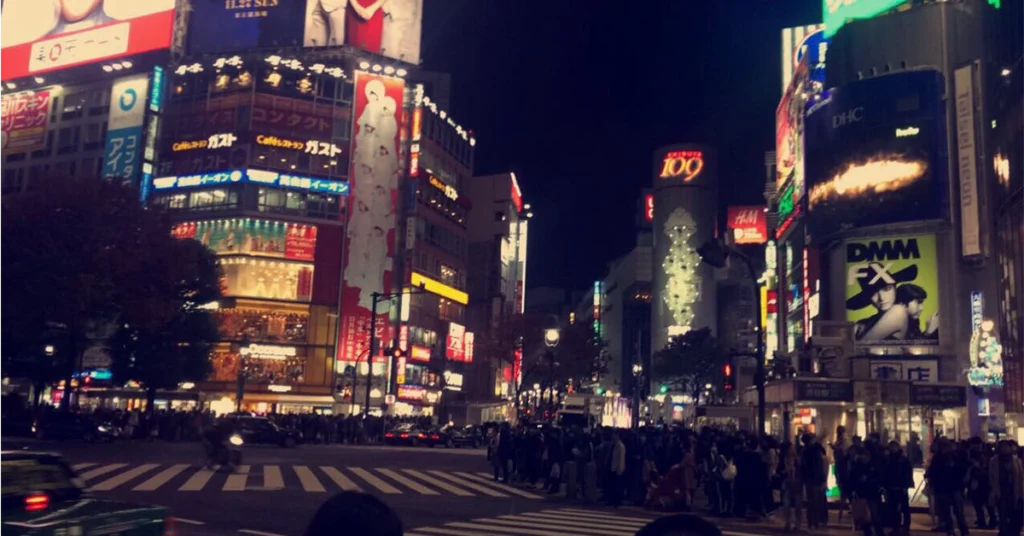
Moving is certainly always challenging and I doubt there is a harder time in a person’s life to do it than high school, never mind making such a drastic geographic and cultural move. I’m sure going to Japan for a few months wasn’t intimidating at all after that experience, and that it made the process of making new friends and integrating into a new culture in Japan that much easier. How was the application process for going on your exchange?
The first part (letter of intent) was easy. The second part of the application came when school was over, but after school was over I relaxed. I felt like I had nothing to do. So my time management decreased and I got my doctors note just before the application deadline.
A doctor’s note? That’s not a very common piece of an application.
No. I had to get an examination for $120 which was an X-ray on my lungs, a hearing test, vision test . This was all part of my Japanese visa application. Then I had to go to the consulate in Calgary to hand in my paperwork.
So once you got your visa, your acceptance letter, and everything else sorted out, you were off to Japan. What was the first thing you noticed?
The first thing I noticed was the $250 taxi ride I paid for. I swore when I checked Google Maps at home that the hotel I booked was only a 15-minute drive from the airport. I had two 25-kilogram bags, plus my other luggage, so I knew I couldn’t walk. I had to get some help. Catching the metro wasn’t an option because of the stairs. So, I took a cab, but it turned out that I was looking at the wrong airport on Google Maps so it was much further than I thought. Even though my Japanese was a bit rusty, I was able to tell the driver where I was going. No one there speaks English. However, the university provides a little arrival guide for what to say to a taxi driver to be taken to the university. When I got into the city, I was amazed by this big ferris wheel in the middle of downtown.
How long were you in your hotel before moving into residence?
Just the night. I could have gotten into residence if I arrived before 5 p.m. but I didn’t, and so I had to check in the next day. The next day I went to campus to check into residence, and there were a bunch of great assistants, which they called RAs, who were there to help and showed me where my room was and help with luggage. They showed me where we get together and where to meet the other exchange students.
When we first got to the international student lounge by the residence, and all the exchange students got together, I immediately thought I wouldn’t be friends with any of them. It’s just that superficial uncontrollable judgment we all make. But I ended up making a lot of friends and it was a lot of fun. I was grateful as I ended up speaking with, and spending time with people I normally wouldn’t and I got a glimpse into other perspectives that I wouldn’t have any other way. As for the Japanese, they seemed very shy, but it turns out that they’re trying to be considerate because they believe they won’t be able to communicate, and so they don’t want to bother you. In our Japanese Language class we were encouraged to go out into the hallway and talk to Japanese students. That helped some of the Japanese students realize that we can speak a bit of Japanese and that they can approach us. The Japanese that I got closest with were bilingual. That way we got the best of both worlds and could both practice our Japanese and English.
So after leaving the hotel, what was your accommodation in residence like?
It was the international house. It was three steps away from the building our classes were in. We got our own bathrooms which were nice, although the bathtub was interesting. It was very small but high so you can sit in it with your knees up. I did feel like there wasn’t enough space for my clothes.
Did you bring a lot of clothes or did you buy a lot of clothes?
Both.
But I did pick the smaller room. My roommate had a bigger room and she let me store my luggage under her bed. We were technically in two rooms but it was separated by just a sliding rice paper door so you had to be quiet when coming home late. The university tries to pair up students who don’t speak the same language so that they’re forced to practice their Japanese together since it’s the only common language between them. It’s all gender segregated of course. My roommate and I laughed together a lot because our conversations didn’t always make sense.
Was sorting out your accommodation part of your application to Nagoya Gakuin University?
Yes. They offer two different sized rooms. I would suggest going for the bigger room. I went for the smaller room to save money but I found that I didn’t have enough space. You can also buy a bedding package but it was all down and I’m allergic to feathers, so I got my own bedding and kitchen stuff from the dollar store for super cheap.
You made the conscious decision to go for the cheaper room because of money. So how was the price of accommodation?
It was cheap! I could never get that here. If I remember, I think it was $500 a month. That included all utilities of course.
Is there anything future exchange students should consider regarding accommodation? Apart from maybe getting a bigger room.
When you buy household items, just buy the cheap stuff. You’re only there for a few months. I gave all my stuff away at the end. You can also share things. So, don’t invest in anything unless you want to take it home. And use your kitchen! Ramen is amazing and cheap but you can’t live on that.
Did you cook a lot before going to Japan?
Yeah. I love cooking.
Did you have to adjust your cooking style or “go-to” recipes based on what ingredients were available?
Oh yeah! I cook with a lot of veggies and a lot of them were very expensive in Japan. There were no real dairy alternatives either so even though I don’t usually drink milk, I did while I was there.
Because I couldn’t make a lot of the recipes I was used to, I bought a Japanese cookbook while I was there. I did some English teaching too and for exercises I’d get the students to translate the recipes.
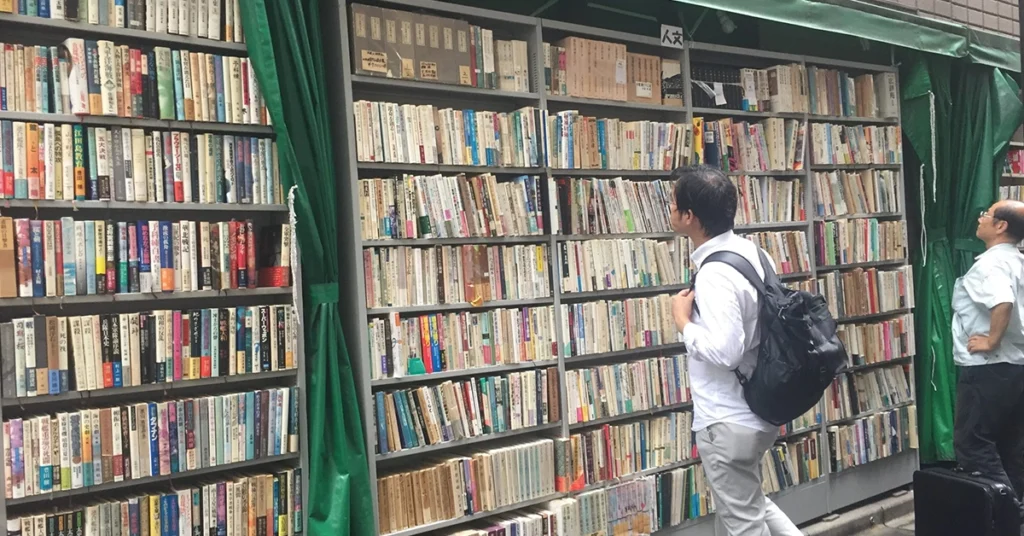
You are very familiar with the Japanese language. How important do you think knowing Japanese is for going on an exchange to Japan?
Even though I had extensive exposure to Japanese throughout my life, I didn’t regularly use it. So, all I think this did was allow me to pick it up quicker. I did meet a lot of people who could say their name, where they were from and that was about it. But they were keen to learn, and that is what I think is essential.
How many courses did you take?
You can take anywhere from three to five. I took five.
All my classes were taught in English (expect for Japanese Language) and it was all international students. Which is too bad because it would have been easier to mingle with locals if we shared a class.
I took karate, which was awesome.
What were some of the differences in teaching style?
Professors at MacEwan amaze me, and I look up to them. All of my teachers at Nagoya Gakuin University seemed very new and shy. But, that could be a presumption on my part. And it could be because they weren’t totally confident in their English language abilities. That’s probably what it is because our Japanese teachers were much more personable. Our karate teacher was amazing!
So do you have a belt now?
Oh, no! Well I have one from when I was a kid but no, I didn’t get one in Japan.
How did you fund your exchange?
I had student loans.
Did you have any awards or any other source of funding?
I got $500 from the MacEwan Education Abroad Award. I didn’t expect anything so even getting that was great. But, hearing that the Education Abroad Award is now $4,000 for a one term exchange is breaking my heart.
Do you remember any of the specific costs?
Books were only $100. I don’t remember the exact cost but the bus card was priced very fair and public transportation (in Japan) is obviously amazing. I didn’t know this about myself before, but I am amazing at navigating public transport. It’s a gift.
Between your monthly expenses (food and shopping), your accommodation, and your flight, what was the biggest cost for you?
The flight wasn’t that bad. It was only about $900, and that’s because I booked it well ahead of time, which all students should do. A lot of students don’t book their flight until they get their visa because they’re scared they might not get their visa but it’s my impression that doesn’t happen often. Because I fly home to Hungary a lot, I know that you need to book flights six months out to get the good prices. I went to Merit Travel to get my insurance but not to book my flight. I knew I could get a cheaper flight booking it myself. Plus, if you are afraid of not getting your visa you can add on a cancellation option. Unfortunately, my baggage got lost and I had to wait for it for three days in Tokyo.
So you had to shop?
Unfortunately. *laughs*
Were there any unexpected costs?
I decided to to get a wireless modem. Food cost me more than I expected. Drinks are super cheap but I ate way more than I thought I would. That’s because we went out a lot. People always wanted to try this restaurant or that restaurant and we always went together.
So, in your spare time you did a lot of shopping and dining out. I’ve been to Japan and I don’t blame you because both of those things are amazing there. But, were there any activities organized by the university for you?
Yes. There was a camp for two to three days. It was at the other campus on the other side of Nagoya. It was kind of like a cultural and language exchange camp. There was a very funny philosophy professor there who got us all to lay in a coffin and contemplate life and death. It was like being present at your own funeral, which is pretty cool because you never really get to do that.
Any “must-do’s” for future exchange students?
Make sure to explore Nagoya and don’t just stick to what becomes familiar after the first few weeks. Even though it’s expensive, take the Shinkansen (bullet train) and definitely go to Osaka or Tokyo. I loved Tokyo so much that I went back this past year. Kyoto and Osaka was very pretty and traditional but I wanted the big city feel.
And how was it being immersed in the Japanese culture?
While I was there, I really wanted to move there. I wanted to have a life there. That’s part of why I went back to Tokyo. I went back to see what it would be like: where I would go grocery shopping, where I would do yoga, and all the stuff I would do at home. However, I realized I felt more comfortable with social interaction in Canada.
When you first went, you were convinced you wanted to move to Japan. So, why did you decide to only study for a term and not a year?
Money. If you have the means, stay for a year. Don’t even think about it.
Living abroad, sometimes things happen and you need to access medical services. The idea of having to do this can be intimidating for some students, did you ever have to access medical services?
Yes.
That was a fast answer. I feel like there must be a story there.
When I got there I was fine but every two months or so I got sick. I couldn’t focus in class, my head was foggy and I felt sick to my stomach. I looked it up and culture shock actually has physical symptoms like loss of appetite, over sleeping and trouble sleeping and things like that. So, I think it was part of that. I got very sick at one point and I think it was the result of a few things but a different lifestyle and poor nutrition were probably a big part of it. I went to the nurse at the school and they told me to see a doctor. You can fill out the form at the doctor office either in English or Japanese. Even though I was sick, I practiced my Japanese and filled in the Japanese form. It was only a few days before that I learnt how to say “my head hurts” so it was as good of timing as it could be. I got antibiotics and the appointment only cost $5.
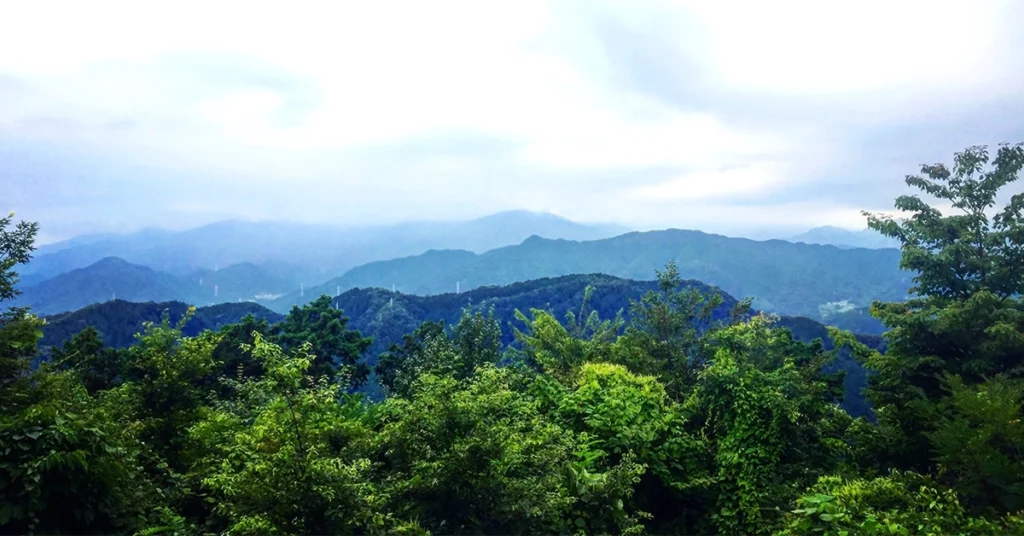
And did the antibiotics help your situation?
Yeah! Within three days I was fine.
Good to hear! While we’re on the topic of personal well being – Did you feel safe during your time in Japan?
Completely. Completely safe. The transit and walking at anytime of day or night felt so safe. Even after a night out, people were so friendly in the streets.
What is your greatest memory of being abroad?
My greatest memory I’m not going to say. My second greatest one was going to a club in Kyoto with a friend of mine. I had very blonde hair at the time, and it’s true that you get a lot of attention being blonde in Japan. At the club, the line was very long and we went up to the front to ask how long the wait would be. The owner quickly came out and told us we could cut the line and get in for free. I felt like a celebrity while I was in Kyoto.
What was something new that you tried?
Shrimp! I had never had shrimp before and I love it so much. I eat it like two times a week now. I tried lots of different food while I was there. I really liked the sake there too, but it wasn’t quite sake, it was like, white?
Negori-sake?
Yeah! That was great. I didn’t like wasabi either but now I love it.
Did you learn anything about yourself?
Oh my gosh, yes! And the best part is that it wasn’t what I thought it would be. I really learned about my personality. There was a girl there who caused a lot of unease in me. The things she did that caused me unease, I realized were things I do or possess as well. It really highlighted the negative side of myself and I was then able to work on that. I also learned a lot of patience.
It sounds like this experience has had a substantial impact on you and your sense of self and yet it was only 4 months of your life.
Yeah!
What was the biggest challenge?
The washing machine. It shrunk everything. And, like I said, adapting to the different social interaction in Japan. I didn’t really have reverse culture shock but I did have culture shock in Japan.
After everything we’ve talked about, it sounds like you had a lot of little challenges more so than one big one.
Yes.
Do you think the reason that you didn’t experience reverse culture shock is because you’ve already had that experience once before when you moved to Canada from Hungary?
Yeah. And I’ve gone back and forth to Hungary and have experienced the reverse culture shock in Hungary a few times. When I came back from Japan I was fine. I thought I would miss everyone but it wasn’t so bad. It was on the anniversary of my trip (September) that I really started to miss it and the people. I just thought about where I was a year ago and it all started to come back.
Facebook memories don’t help I imagine. “This time a year ago you were doing this amazing thing.”
Yeah, absolutely! I’ve learned to filter my thoughts after saying goodbye to people so much every time I would leave Hungary. I tried to take the lessons with me and less of the emotions. Except for the good ones of course.
It sounds like you’re quite pragmatic.
Totally. If I want to go back, I can go back.
Would you change anything?
I think I would be more careful, not so much with spending money, but with where I spend money and I would take less stuff with me.

Did you end up taking a lot of stuff you didn’t need?
Oh yeah… I took 12 pairs of shoes and only used like three or four. I also bought a lot of stuff.
So my last question. Or, more of a request. What are the three most important things for future exchange students going to Nagoya Gakuin University to know?
- Go for a year!
- Make sure to practice your Japanese before and after. And don’t let yourself lose the language skills you learn.
- Lastly, don’t be scared to spend money on your experience. You never know when you’re going to be with the friends you made abroad again or when you’ll be back in your host country.
Do you have any parting words?
Not everyone gets homesickness. It’s not something I experienced but other people did.
So, your culture shock didn’t involve homesickness?
No. Maybe, like I wanted a double-double or my bed. My bed is so comfortable. And, I missed my mirror. And, Sephora. I don’t think it was necessarily homesickness, I think it was just items from home. I missed certain products, and food, my morning routine… and my hair dresser.
It sounds a bit like home sickness.
Does it? *laughs*
Cover photo by Tyler Cantwell. Other photography by Viktoria Horvat.

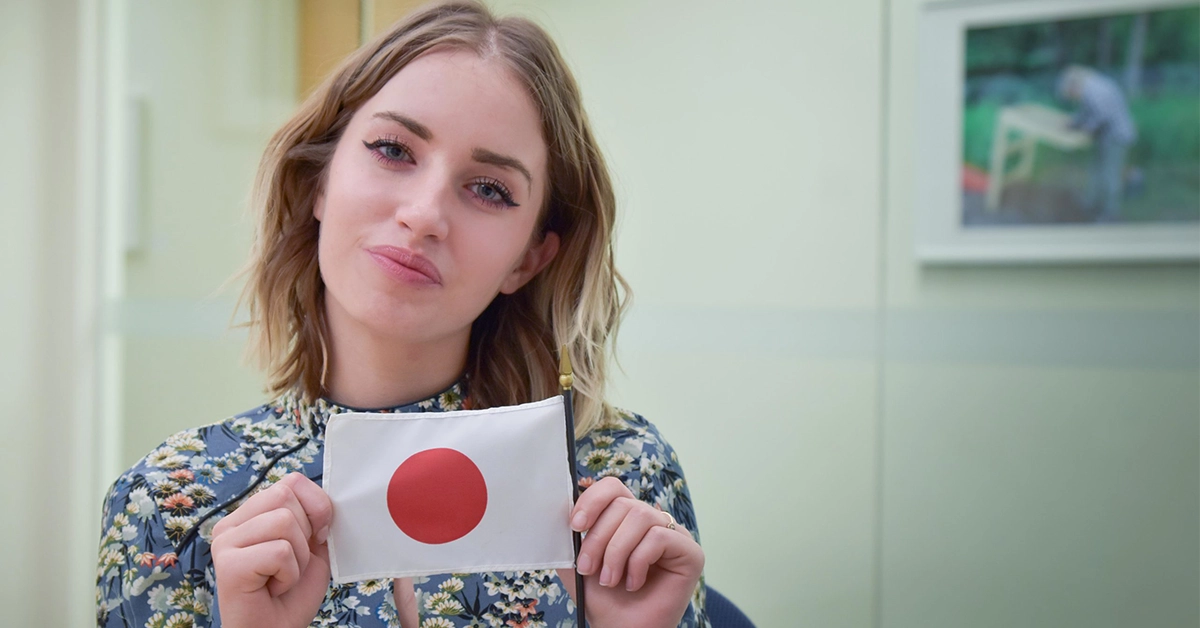
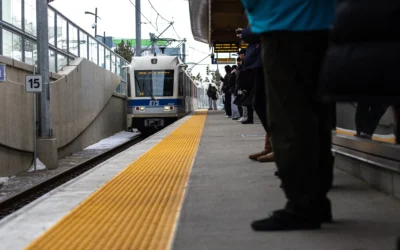


0 Comments